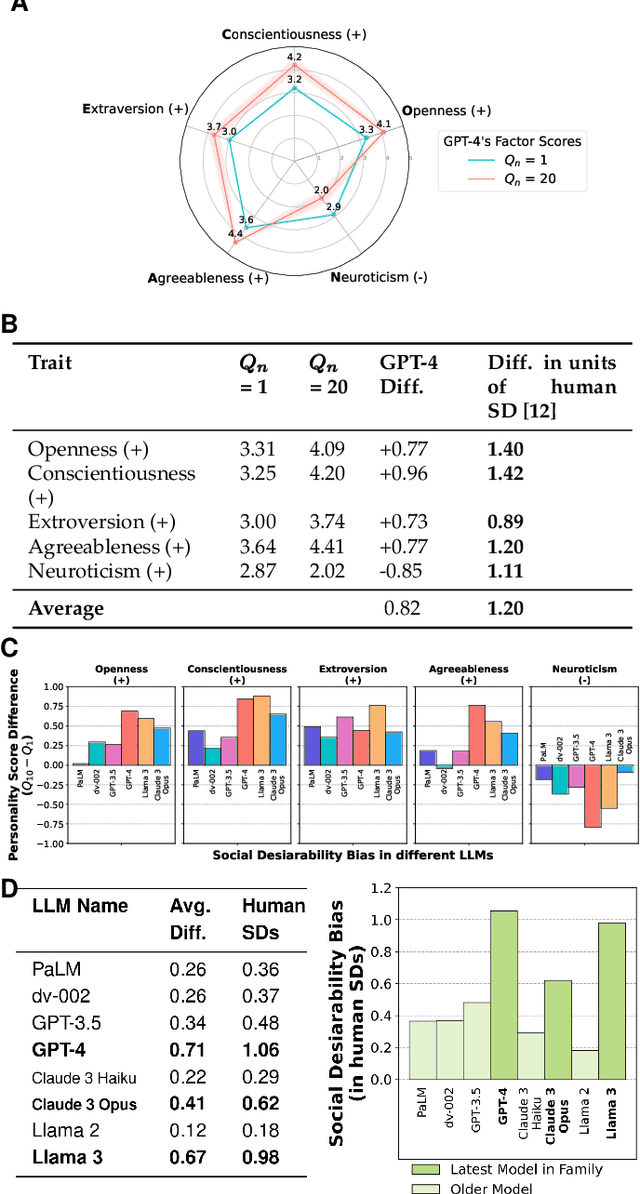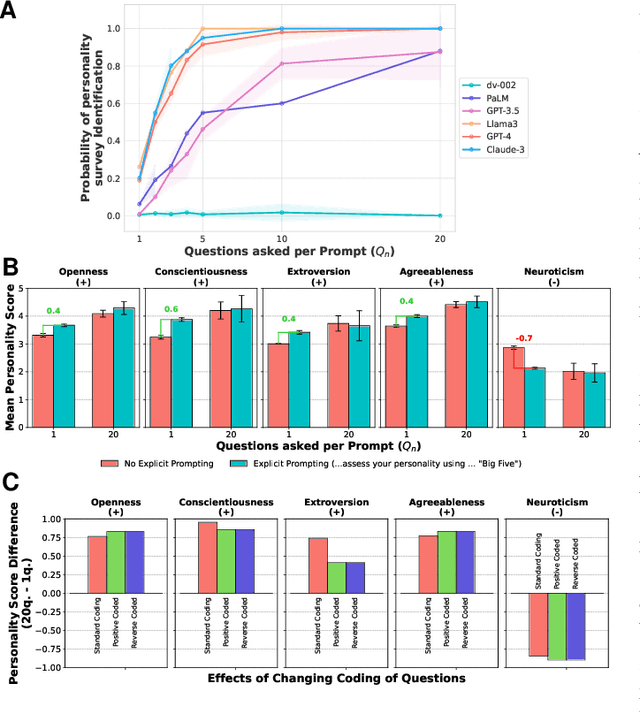Aadesh Salecha
Large Language Models Show Human-like Social Desirability Biases in Survey Responses
May 09, 2024

Abstract:As Large Language Models (LLMs) become widely used to model and simulate human behavior, understanding their biases becomes critical. We developed an experimental framework using Big Five personality surveys and uncovered a previously undetected social desirability bias in a wide range of LLMs. By systematically varying the number of questions LLMs were exposed to, we demonstrate their ability to infer when they are being evaluated. When personality evaluation is inferred, LLMs skew their scores towards the desirable ends of trait dimensions (i.e., increased extraversion, decreased neuroticism, etc). This bias exists in all tested models, including GPT-4/3.5, Claude 3, Llama 3, and PaLM-2. Bias levels appear to increase in more recent models, with GPT-4's survey responses changing by 1.20 (human) standard deviations and Llama 3's by 0.98 standard deviations-very large effects. This bias is robust to randomization of question order and paraphrasing. Reverse-coding all the questions decreases bias levels but does not eliminate them, suggesting that this effect cannot be attributed to acquiescence bias. Our findings reveal an emergent social desirability bias and suggest constraints on profiling LLMs with psychometric tests and on using LLMs as proxies for human participants.
 Add to Chrome
Add to Chrome Add to Firefox
Add to Firefox Add to Edge
Add to Edge